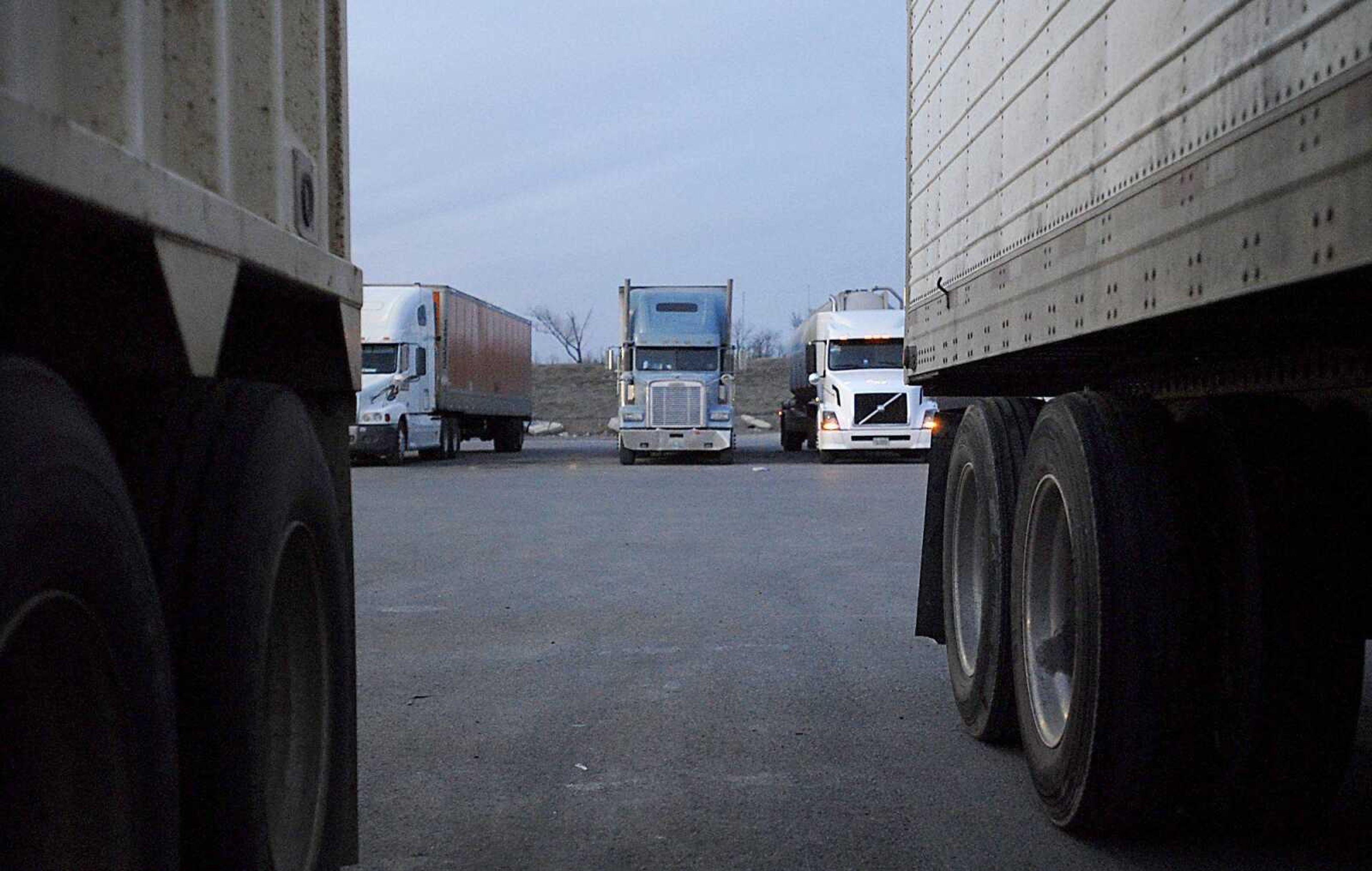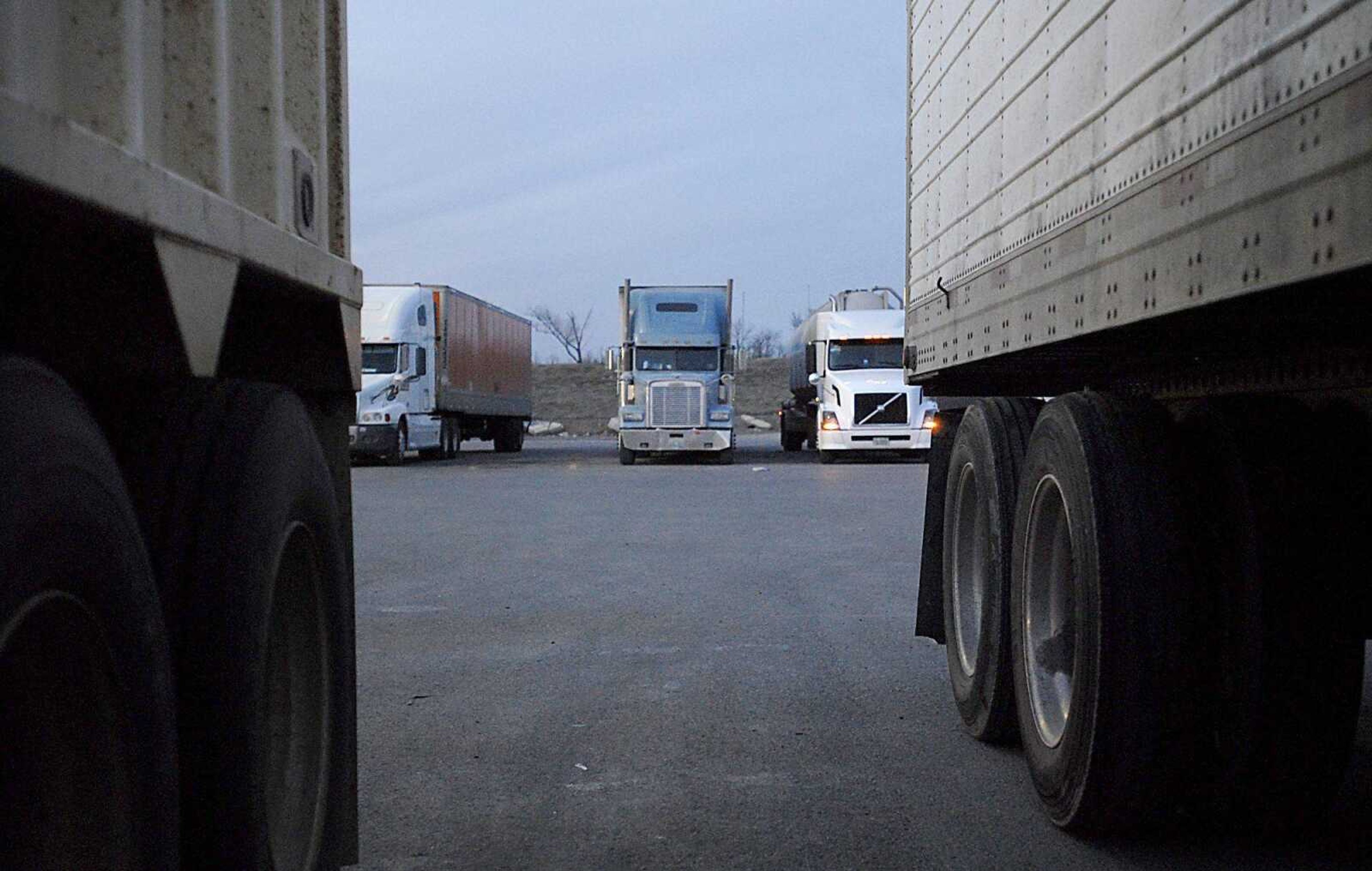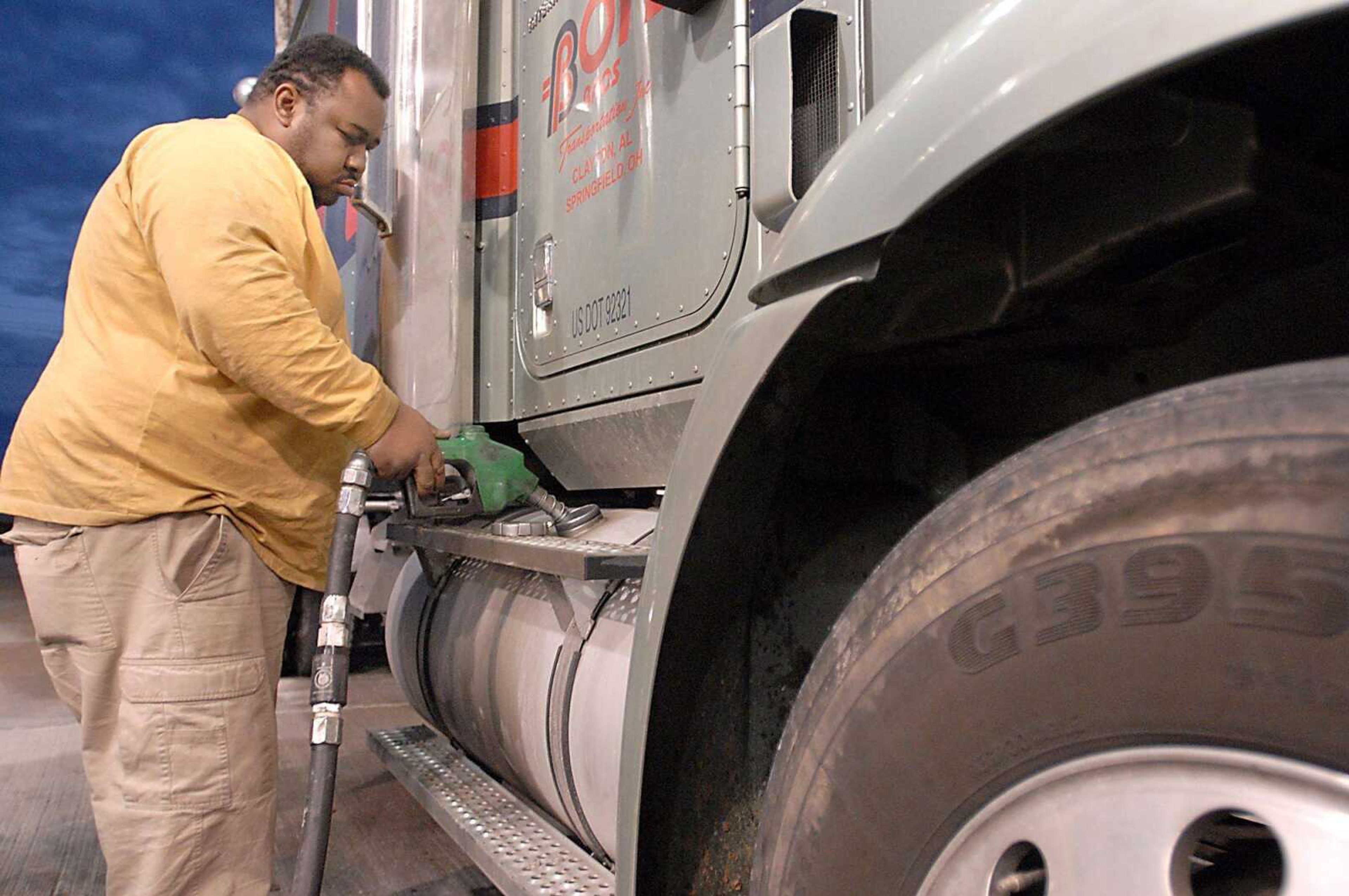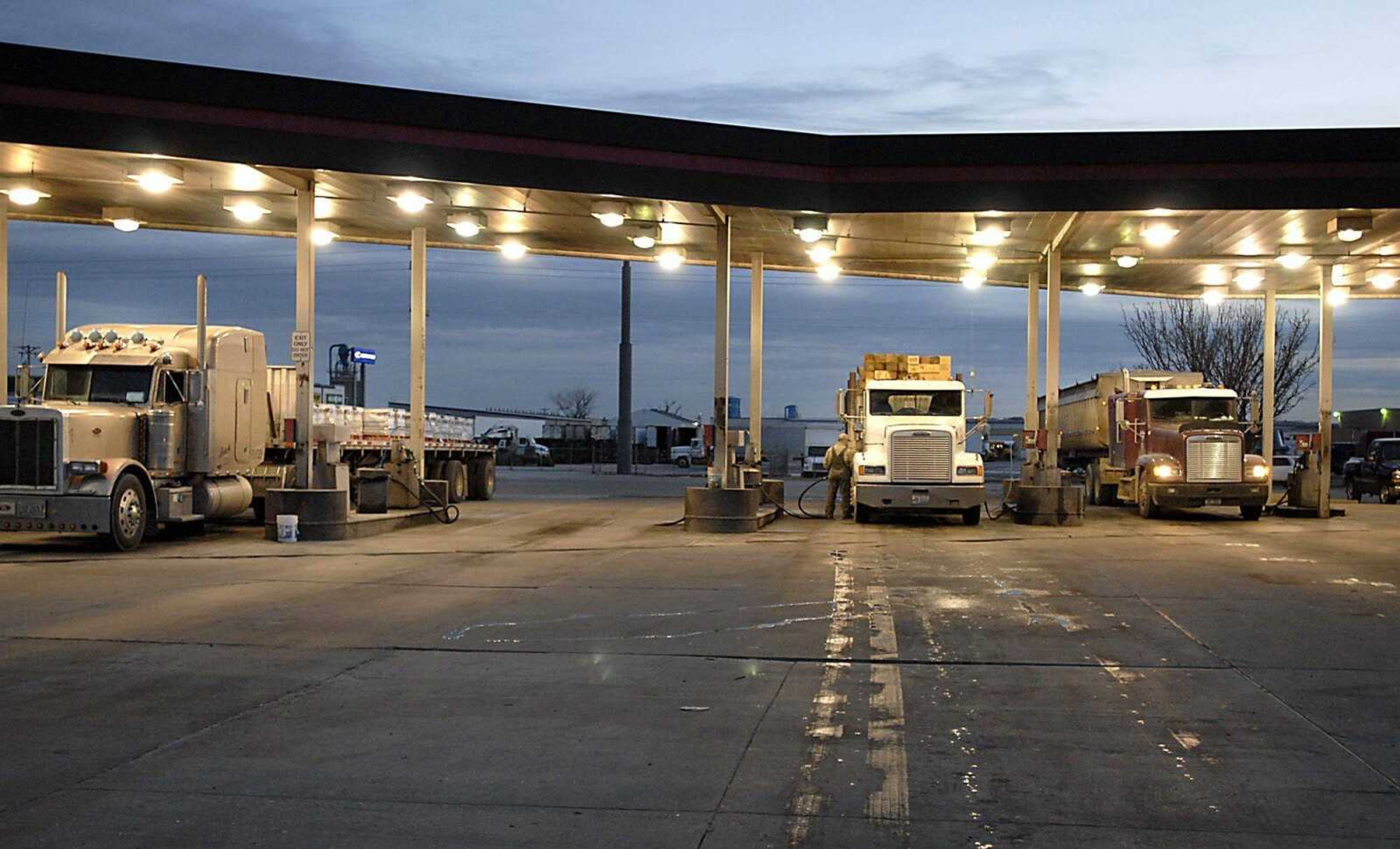A costly commodity
There's a fuel pump at almost every convenience store, usually off to the side somewhere, that dispenses a costly commodity. Diesel fuel is used by few people who drive cars, and each gallon costs 30 to 50 cents more than gasoline. But consumers buy diesel fuel almost every time they make any kind of purchase. ...
There's a fuel pump at almost every convenience store, usually off to the side somewhere, that dispenses a costly commodity. Diesel fuel is used by few people who drive cars, and each gallon costs 30 to 50 cents more than gasoline.
But consumers buy diesel fuel almost every time they make any kind of purchase. The goods on retailers' shelves arrive as raw materials at food processing plants, lumber mills and other manufacturing facilities in trucks, trains and barges powered by diesel fuel. The finished goods leave factories the same way, making diesel one of the key costs in the mix of inputs that determine prices.
And as diesel has climbed in parallel with gasoline in recent years -- some stations in Cape Girardeau were selling diesel for $3.40 a gallon Friday -- the cost of shipping goods has started to squeeze both retailers and the trucking companies that transport goods. And with the price of crude oil hovering near $100 a barrel, experts said fuel prices will likely continue rising.
As the price of diesel increases, trucking companies impose ever-higher fuel surcharges on their customers. And while some trucking company customers are pushing back, asking for cuts in the underlying per-mile rates the truckers charge, there's not a lot of room to give.
"We've been asked to start showing some discounts on the freight movement," said Paula Klingeman, co-owner with her husband Bill Klingeman of K-Way Express Inc. of Scott City. "It is surprising to us that they are asking us to go down."

The Klingemans are both the third generations of their families in the trucking business. With about six trucks on the road at any given time, the company is small, but that's the way they like it, Paula Klingeman said. The company also finds contract truckers to move goods when they can't send a company vehicle.
The rising diesel prices keep employee raises low and force tough decisions about capital expenses, Klingeman said. "We usually buy one new truck toward the end of the year and this year we didn't," she said.
The fuel surcharges are just one factor in determining prices, and the most recent data shows inflation is heating up. The wholesale prices for all finished goods rose 7.2 percent in the 12 months ending in November, and the prices for raw materials increased 22.4 percent in the same period. Retail prices have been more moderate, but prices still rose at an annual rate of 5.6 percent in the most recent three months, according to the Bureau of Labor Statistics.
"Every vendor we have is charging us a fuel surcharge," said Robert Gosche, owner of Morley Building Supply in Morley, Mo. "On some vendors, it has more than doubled in the last year."
Gosche, however, resists doing the same for his customers. He makes no charge for deliveries, instead building that cost into his prices. But there's a limit to that strategy, he said, because there's plenty of competition in the building supply business.

And delivery costs aren't the only place high oil prices pinch Gosche's business. Oil is a major component in roofing shingles, for example, increasing the price by about 15 percent in two years. But lumber prices are down -- the result of the slump in home construction -- so he's able to offer some relief, Gosche said.
The price easing for retail lumber, while good news for consumers, is bad news for lumber mills, said Brian Brookshire, executive director of the Missouri Forest Products Association. Lumber is a commodity, with market-bid pricing for standard grades, he said.
The result is that lumber mills, which pay truckers to deliver logs and trucks or railroads to take away finished products, face a shrinking cash flow while fuel surcharges mount, he said.
"It is having a huge impact," Brookshire said.
Missouri lumber mills typically send their products to the West Coast for shipment overseas, Brookshire said. "That cost has escalated tremendously," he said. "Not only are transportation costs and everything associated with our industry increasing, the product price is declining. The price for our goods is going down while the input costs for shipping it are going up."

Missouri lumber mills aren't in as bad a shape as some, Brookshire noted. The price of southern yellow pine, the standard framing lumber for most home construction, has plummeted as the housing market turned sour, he said. About 60 percent of the lumber produced in Missouri is red oak, and there is strong demand for the hard wood for use as railroad ties.
No Missouri mills have closed, Brookshire said. "But what I am hearing is that it is just a true struggle to stay in business right now to cover your costs. We are experiencing a terribly challenging time right now in the forest products industry."
Compounding the added cost of generally higher oil prices, new rules on the composition of diesel, coupled with inelastic demand and a heavier fuel tax than gasoline, have combined to push the price of diesel well above that of gasoline, said Ron Leone, executive director of the Missouri Petroleum Marketers and Convenience Store Association. Before 2005, diesel was generally a few cents per gallon cheaper than regular gasoline.
"The demand is not going down" in response to higher prices, Leone said. "More and more products are being transported by truck, from jeans to drywall to all the food in the grocery store."
Two grocery departments that have been especially prone to rising prices in recent months are the produce and cereal aisles, said Dennis Marchi, store manager of Schnuck's in Cape Girardeau. Produce items must be transported from California, Florida or even further, he noted. Grapes at his store, for example, come from Chile.
"The other thing is that cereal is going up because of the costs of fuel and grain," Marchi said.
Inflation in the U.S. has been held in check since the early 1980s by monetary policy and productivity gains. But raw material and transportation cost increases are harder to overcome by such measures than wage increases.
The trucking companies are holding the line as much as possible, but cannot allow fuel costs to overwhelm them, said Mike Wilson, a sales representative for Exmark Logistics and Chris Pike Trucking in Jackson.
"We accommodate them the best we can," Wilson said. "Some prefer flat rates. And some we do have a base rate and as the fuel fluctuates, then we add the surcharge. It has been a little difficult to keep our customers happy."
rkeller@semissourian.com
335-6611, extension 126
---
Diesel prices
Like the price of gasoline, the retail cost of diesel fuel has increased dramatically over the past two years. The ubiquitous use of diesel to move goods by truck, rail, barge and cargo ship is beginning to squeeze businesses.
Average diesel price, Dec. 31: $3.345/gallon
Average diesel price, 2006: $2.705/gallon
Average diesel price 2002: $1.319/gallon
Average diesel price, 1997: $1.198/gallon
Source: U.S. Energy Information Administration
Connect with the Southeast Missourian Newsroom:
For corrections to this story or other insights for the editor, click here. To submit a letter to the editor, click here. To learn about the Southeast Missourian’s AI Policy, click here.








